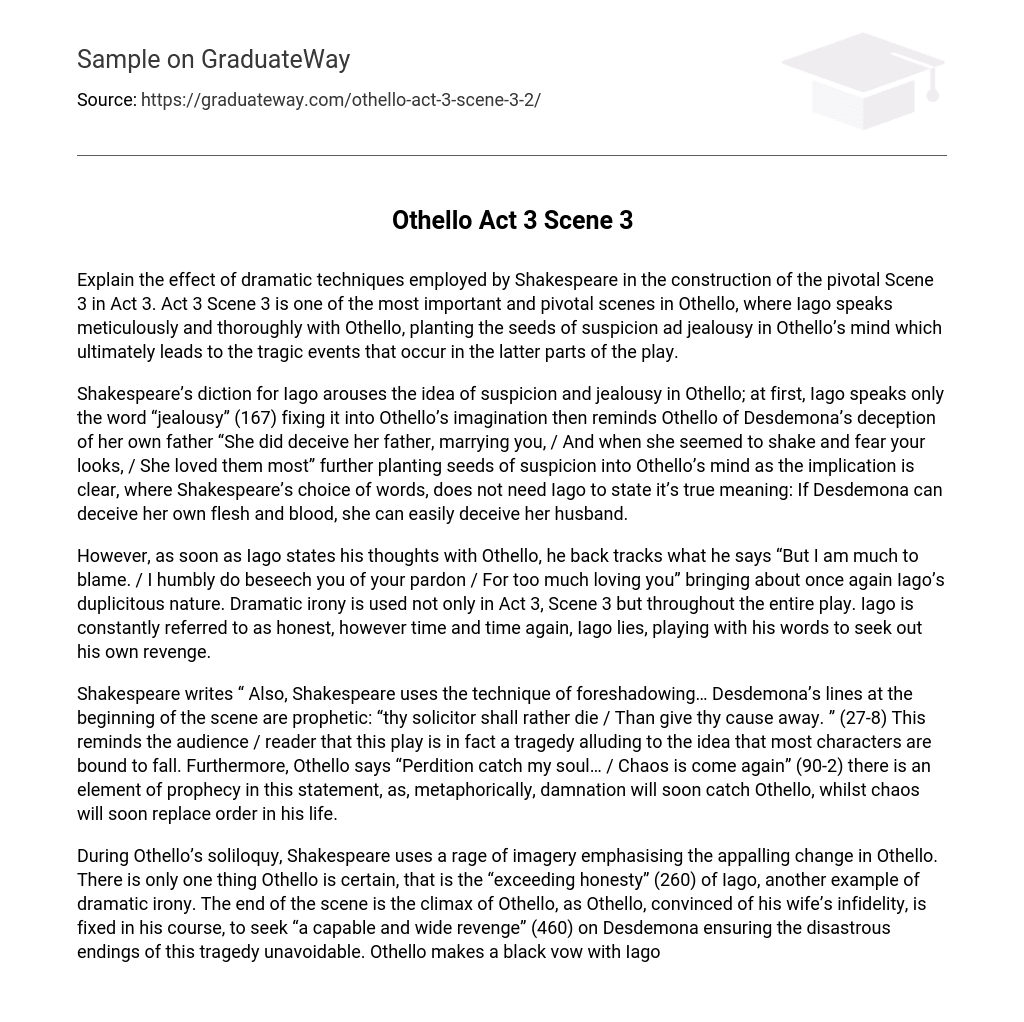In Act 3 Scene 3 of Othello, Shakespeare uses dramatic techniques to construct a pivotal scene. This scene is crucial as it involves Iago carefully and thoroughly planting seeds of suspicion and jealousy in Othello’s mind, leading to tragic events later in the play.
In Othello, Shakespeare uses Iago’s language to create a sense of suspicion and jealousy. Initially, Iago only mentions the word “jealousy” (167), which begins to take hold in Othello’s mind. Later on, Iago reminds Othello of Desdemona’s deceit towards her own father saying “She did deceive her father, marrying you, / And when she seemed to shake and fear your looks, / She loved them most.” This further reinforces suspicion within Othello as it suggests that if Desdemona can deceive her own family, then she can easily deceive her husband.
However, as soon as Iago states his thoughts with Othello, he backtracks what he says, saying “But I am much to blame. / I humbly do beseech you of your pardon / For too much loving you,” bringing about once again Iago’s duplicitous nature. Dramatic irony is used not only in Act 3, Scene 3 but throughout the entire play. Iago is constantly referred to as honest; however, time and time again, Iago lies, playing with his words to seek out his own revenge.
Shakespeare utilizes the technique of foreshadowing in his writing. At the beginning of the scene, Desdemona’s lines are filled with prophecy: “thy solicitor shall rather die / Than give thy cause away.” (27-8) This serves as a reminder to the audience or reader that this play is indeed a tragedy, hinting at the inevitable downfall of most characters. Moreover, Othello exclaims “Perdition catch my soul… / Chaos is come again” (90-2), which carries a prophetic undertone. Metaphorically, Othello will soon be damned, while chaos will replace order in his life.
During Othello’s soliloquy, Shakespeare uses various imagery to highlight the dramatic change in Othello. One thing that Othello is absolutely certain about is the “exceeding honesty” (260) of Iago, which is another example of dramatic irony. The conclusion of the scene marks the pinnacle of the play, as Othello, fully convinced of his wife’s betrayal, is resolute in his decision to seek “a capable and wide revenge” (460) on Desdemona, ultimately leading to the tragic ending of this story. Othello forms a dark pact with Iago.





